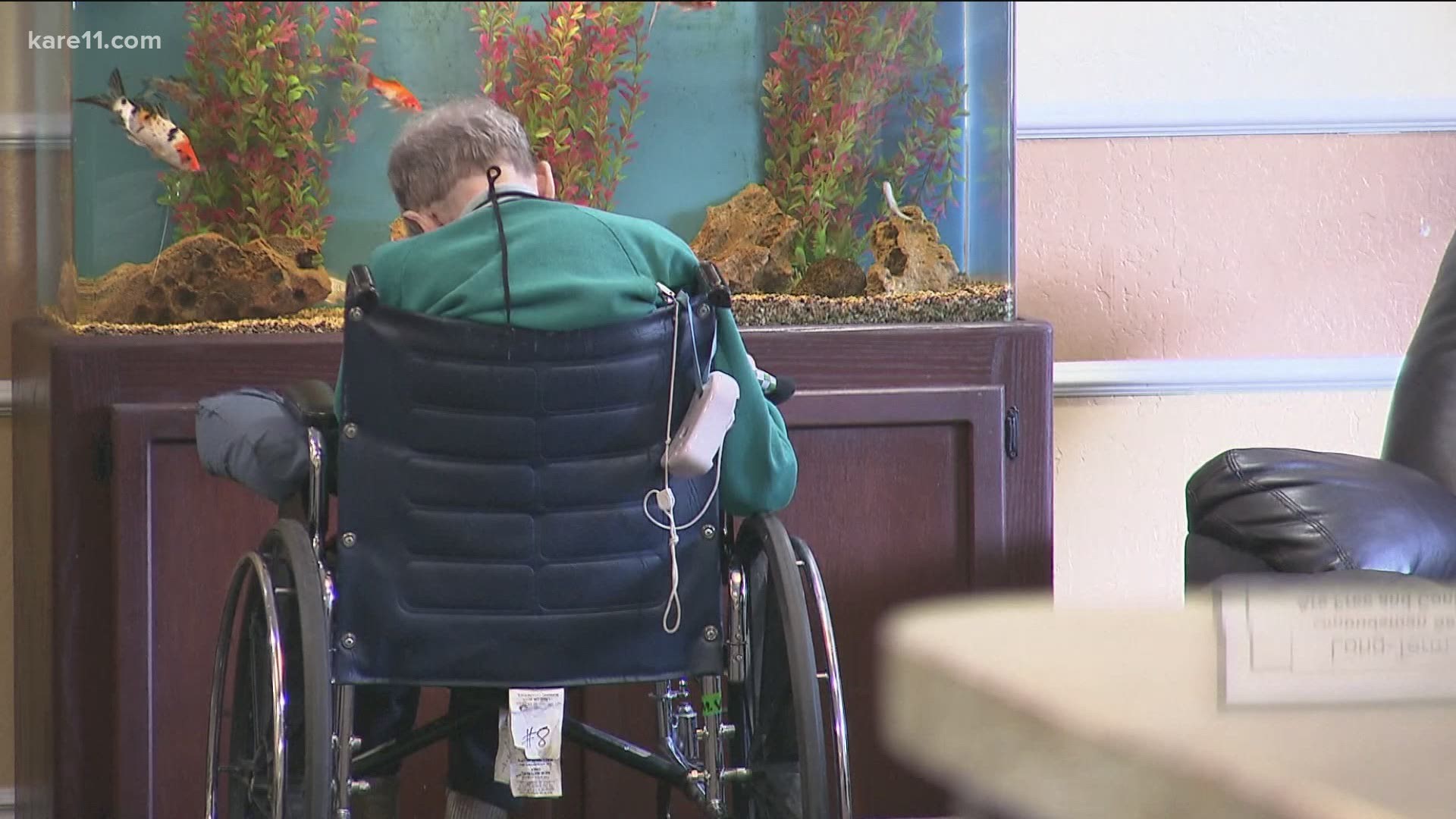MINNEAPOLIS — Several new studies show a possible – and concerning – connection between COVID-19 infections and those who already have or may develop Alzheimer’s and other dementia.
In fact, one study is even researching whether a COVID infection may increase a person’s chance for developing dementia – of which Alzheimer’s is the most common form – down the road.
Latest studies: jump in ALZ deaths, Alzheimer’s patients twice as likely to contract COVID
According to data from the Centers for Disease Control and Prevention (CDC), the number of deaths attributable to Alzheimer’s and dementia during the pandemic has jumped by 12% in Minnesota alone. Leaders with the Alzheimer’s Association, Minnesota-North Dakota note the reasons for the increase among the 99,000 Minnesotans living with Alzheimer’s may vary but could include: reduced access to physicians and health care during the pandemic, a disruption to daily routines and care provided by family members and other caregivers, and the simple toll of social isolation.
Meantime, a recent study by Case Western University – published in Alzheimer’s & Dementia: The Journal of the Alzheimer’s Association – also found those with dementia have double the risk of contracting COVID-19 when compared to those without dementia. The study further noted that 20% of patients with dementia died when they contracted COVID, compared to just over 5% of people without dementia.
One big study: does getting COVID lead to dementia down the road?
But perhaps the most alarming study relates to whether a COVID infection could lead to developing dementia later in life.
“It seems like large organizations, like the Alzheimer’s Association, have the presence of mind, no pun intended, to start looking at cognitive consequences of this disease,” said Dr. Michael Rosenbloom, a behavioral neurologist and clinical director of the HealthPartners Center for Memory and Aging.
Rosenbloom noted doctors are already seeing signs of how COVID affects the brain, short-term, with patients becoming confused or having memory issues after infection. But now a new international study – supported by the Alzheimer’s Association with technical guidance from the World Health Organization – will look at the potential for COVID’s long-term effects on the brain, by following 40,000 patients from nearly 40 countries for at least two to three years.
“We know that this is a virus that does have a predilection for the central nervous system. And so, for instance, it is not uncommon for patients who are infected with COVID-19, especially if they’re elderly, to present with delirium and altered mental status,” Rosenbloom shared with KARE 11’s Karla Hult.
Rosenbloom further noted the study builds upon an area of scientific research related to other respiratory viruses, like the 1918 influenza pandemic or severe acute respiratory syndrome (SARS). Years after those viruses attacked the global population, scientists noted an increase in other issues, including: memory problems, anxiety, and psychosis.
Doctors fear COVID-19 could leave its lasting mark by creatively attacking the brain: targeting the area of the brain responsible for both the sense of smell and short-term memory; creating blood clots that cause strokes; triggering a destructive immune response; or simply, cutting off oxygen.
“If a patient has respiratory failure and the brain is deprived of oxygen, this can further impact cognition and will also have downstream consequences over time,” Rosenbloom said.
The study will further compare cognitive symptoms based on the care patients received during their COVID-related illness. Scientists will also evaluate whether COVID contributes to cases of familiar dementia – like Alzheimer's – or if patients develop a "COVID-specific" dementia.
And while the study may not deliver initial results until early 2022, Rosenbloom and others are already braced for what the findings may mean for the current health care crisis related to Alzheimer's and other dementia.
“You can imagine that we may have COVID clinics, patients post-COVID presenting with cognitive decline. And these numbers are probably going to be vast because of how infectious this disease is, and how many patients have been infected… not just in the United States but throughout the world,” Rosenbloom said, adding, “This potentially could present a crisis for individuals or physicians in my field of work."
Familiar allies
And on that point of concern and awareness, Rosenbloom and other neurologists have a familiar ally.
“If there is a link and more people are diagnosed because they had COVID disease, it would be astronomical – the cost, the financial cost. And of course, devastating, emotionally to all of us,” said Sue Spalding, Chief Executive Officer of the Alzheimer’s Association, Minnesota-North Dakota.
Spalding noted the concern is a huge reason why the Alzheimer's Association supports the global, ongoing study and why advocates continue to encourage COVID-19 vaccinations for everyone, especially those in long-term care centers or vulnerable communities. The CDC also recommends that front-line health workers and residents and staff in long-term care settings be among the first groups to receive vaccination.
For more information on the sweeping global study, click here.
And check out alz.org for information on support or other Alzheimer's research.

